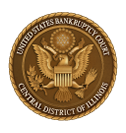The plaintiff, who had been in a relationship with the debtor-defendant, lent him money over the course of the year. Each time, the debtor falsely promised to pay back the loan, but never did. The plaintiff established that each loan was obtained on the basis of a material misrepresentation, but she was not justified in relying on the misrepresentations once it had become clear that the debtor did not intend to pay her back. Some of the debt is therefore excepted from discharge as obtained by fraud, while the remainder will be discharged.
Statute: 11 U.S.C. §523(a)(2)(A)
